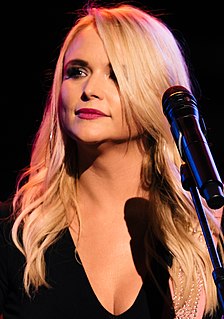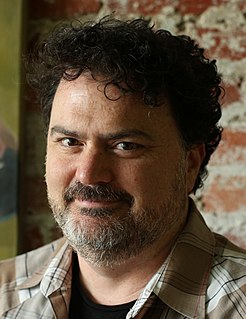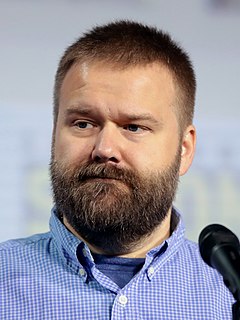A Quote by Julia Cameron
I started writing morning pages just to keep my hand in, you know, just because I was a writer and I didn't know what else to do but write. And then one day as I was writing, a character came sort of strolling in and I realized, Oh my God, I don't have to be just a screenwriter. I can write novels.
Related Quotes
The secret to writing is just to write. Write every day. Never stop writing. Write on every surface you see; write on people on the street. When the cops come to arrest you, write on the cops. Write on the police car. Write on the judge. I'm in jail forever now, and the prison cell walls are completely covered with my writing, and I keep writing on the writing I wrote. That's my method.
It's not possible to advise a young writer because every young writer is so different. You might say, "Read," but a writer can read too much and be paralyzed. Or, "Don't read, don't think, just write," and the result could be a mountain of drivel. If you're going to be a writer you'll probably take a lot of wrong turns and then one day just end up writing something you have to write, then getting it better and better just because you want it to be better, and even when you get old and think, "There must be something else people do," you won't be able to quit.
Just write. If you have to make a choice, if you say, 'Oh well, I'm going to put the writing away until my children are grown,' then you don't really want to be a writer. If you want to be a writer, you do your writing... If you don't do it, you probably don't want to be a writer, you just want to have written and be famous—which is very different.
Even though novels were the love of my life, I started off writing poetry. I think because I had a knack for image and lyricism, even though I didn't really have anything to write about, or I didn't know what to write about. I could just couple words together that pleased me and so poetry seemed sort of natural.
I just feel like it's easier to co-write sometimes, especially if you have chemistry with somebody. It kind of takes all the pressure off of you. But, you know, I started writing songs by myself. I didn't really have a co-writer, besides my dad. When I see a record and it has a song on it that someone wrote [alone], I just really believe in them as a writer. I feel like it's a window into them, more than it is if you write a song with someone else.
If you're really a good writer and deserve that honored position, then by God, you'll write, and you'll be read, and you'll be produced somehow. It just works that way. If you're just a simple ordinary day-to-day craftsman, no different than most, then the likelihood is that you probably won't make it in writing.
Oh yeah - you have to write every day. Or every weekday. Because writing is a job. It's not eureka moments over and over. It's grueling work, panning for gold. You just keep at it and eventually you get a few grains. Or flakes. Or whatever gold looks like in rivers. Or maybe it's like fishing. Who cares? You just have to do it every day because you never know which day is going to be your productive day.
When you write comic books and when you are writing for television, you're not writing the end product, you are writing notes for someone else to make the end product essentially. My scripts are just directions for the artist to draw pages and the pages are what is seen. I kind of feel like it's a safety net, you're able to hide behind the art to a certain extent, and in television you're able to hide behind the actors and the production, but with novels, your words are it
When I started writing short stories, I thought I was writing a novel. I had like 60 or 70 pages. And what I realized was that I don't write inner monologue. I don't want to talk about what somebody is thinking or feeling. I wanted to try to show it in an interesting way. And so what I realized was that I was really writing a screenplay.
I try to write every day. I don't beat myself up about word counts, or how many hours are ticking by on the clock before I'm allowed to go and do something else. I just try to keep a hand in and work every single day, even if there are other demands or I'm on a book tour or have the flu or something, because then I keep my unconscious engaged with the book. Then I'm always a little bit writing, no matter what else I'm doing.
If you're going to be a writer you should sit down and write in the morning, and keep it up all day, every day. Charles Bukowski, no matter how drunk he got the night before or no matter how hungover he was, the next morning he was at his typewriter. Every morning. Holidays, too. He'd have a bottle of whiskey with him to wake up with, and that's what he believed. That's the way you became a writer: by writing. When you weren't writing, you weren't a writer.
When I first started writing, there was no way I'd write a sex scene. That just seemed impossible. That's why in "Fight Club" all the sex happens off-screen. It's all just a noise on the other side of the wall or the ceiling. I just couldn't bring to write in a scene like that. So one of the challenges with "Choke" was I wanted to write sex scenes until I was really comfortable just writing them in a very mechanical way.
People imagine that there are rituals, like lighting candles or sacrificing chickens. They really just want to know what the magic formula is for writing. I inevitably disappoint them by saying you just put your butt in the chair, and you write 500 words a day, and then you get up and repeat it the next morning.






































